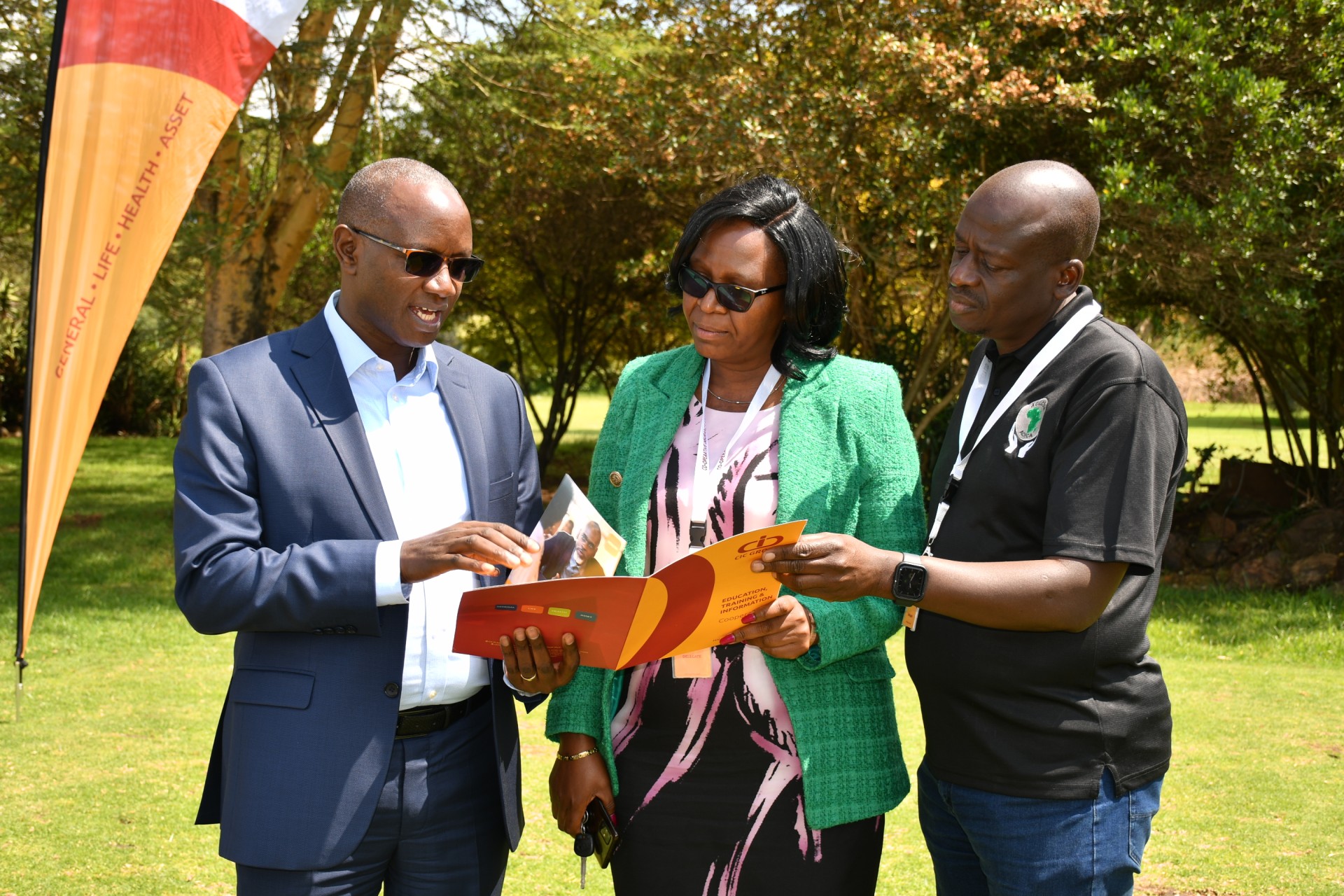Savings and Credit Cooperative Societies (Saccos) countrywide have been urged to innovate in the face of the changing business environment in order to be to meet the growing needs of the of their customers.
The CIC insurance and Investment Group Chief Executive Officer (CEO) Patrick Nyaga also rooted for mechanization of the Sacoo services, saying it will bring efficiency and more value to them and their clientele.
Nyaga noted that Saccos were facing a lot of challenges such as the shrinking economy and competition from other service providers, hence the need to modernize and look for ways of staying ahead of the competition and the economic challenges facing the country, which in turn will in turn bring profitability to their organizations.
Nyaga was speaking in Naivasha Monday during this year`s meeting with CEOs of over 200 Saccos, which have insured with CIC insurance and are also shareholders in the company.
The company organizes the annual Sacco CEOs forum as part of its stakeholder’s engagement.
The CIC Group CEO said the insurer recognizes the need to foster and maintain meaningful relationships with their stakeholders and to affirm its commitment to help them handle risks.
“The purpose of the forum is to impart Saccos with the necessary strategic and business management skills to ensure sustainable growth, especially in this difficult economic times.
“We intend to use the two days to focus on the on achievement of sustainable growth and profitability in Saccos in turbulent micro -economic times and the key discussion will be on Golden circle perspective to business development, brand positioning and building customer loyalty,” Nyaga said.
He further noted that CIC Insurance plays an important role in educating co-operative leaders and managers on risk management and corporate governance in their institutions.
National Police DT Sacco CEO Solomon Angutsa Atsiaya said in this economically perilous times, the Sacco Shareholders are seeking to reduce risks to the minimum and CIC Insurance has giving them optimal solutions towards risk management.
“We are looking at how to build more capacity for our members which will in turn help us in harnessing more business in the face of competitions,” he said, adding that as risk increases more cover is needed so that Saccos don’t go down.
Safaricom Sacco CEO Joseph Njoroge on his part said they want to have mind shift in order to be more customer focused as a way of beating competition and remain relevant in the market, noting that Saccos were going through unique challenges, depending on the environment they were operating in.
Egerton University Sacoo CEO Jane Kaimuri said business on their part has been going through turbulence as most of their members, who are employees of Egerton University have been receiving only 60 per cent of their salaries, making the loan default rate to stand at between 40 to 45 per cent.
“We have had to readjust the loan repayment period for the members and are now looking at creating more value for customers and we are also training them on how to venture into other sources of income, but we are positive that things will change in the next few months,” she said.
Meru Dairy Union CEO Kennedy Gitonga said CIC has helped his organization which produces the Mount Kenya milk brand to insure the dairy animals in order to avoid uncertainties.
Currently, there are over 14,000 registered cooperative societies, out of which 5,000 are SACCOs. Co-operatives have mobilized domestic savings to the tune of about Sh400 billion, accounting for 33 percent of the national savings, and are major drivers of the economy.
The Kenya National Police DT Sacco on its part was registered on 20th November 1972, with a membership of 690 and has grown to the current membership of 71,000 with an asset base of Sh48.7 Billion and a loan portfolio of Sh41 billion and a total deposit of Sh29 billion making it one of the giant Saccos in the country.
The society’s annual revenue grew to Sh7.9 billion in 2022 compared to Sh.7 billion in the preceding year, representing a 12.9 percent growth, thus cementing their place as key pillars of Kenya’s saving culture.

